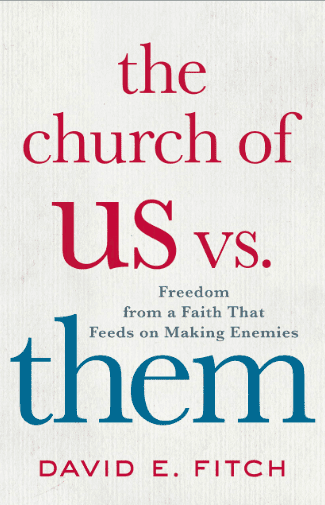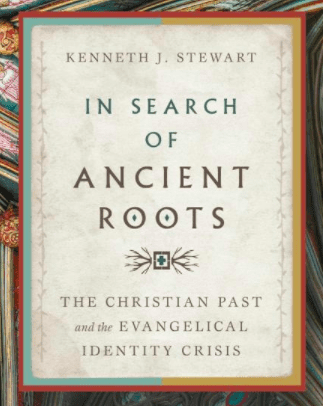Some of you will observe that the RSS feed is not giving a full text but only an excerpt. Patheos and I are in discussion about this, but for now we are asking you to come to the site to get the full read. Please be patient with this approach and we’ll go one step at a time. We had to walk through this process at Beliefnet, too, and I’m sure over time we’ll find what is best for all of us. Thanks.
 Hugh Hewitt, in a series on the Patheos site, spoke a few times about “evangelical Roman Catholics.” I have no desire here to raise the hackles of the Reformation or get into a tussle with Catholics, but I want to make a claim that it is unwise and unhelpful to affix “evangelical” to “Roman Catholic.” The term “evangelical” needs a more narrow definition and not a more expansive one. That’s my thesis, and here’s why I make this claim.
Hugh Hewitt, in a series on the Patheos site, spoke a few times about “evangelical Roman Catholics.” I have no desire here to raise the hackles of the Reformation or get into a tussle with Catholics, but I want to make a claim that it is unwise and unhelpful to affix “evangelical” to “Roman Catholic.” The term “evangelical” needs a more narrow definition and not a more expansive one. That’s my thesis, and here’s why I make this claim.
The word “evangelical,” while it can be a simple biblical expression, as in the “evangel” or the “evangelical” message of the apostle Paul, has been used for two centuries or more for a Protestant expression of the Christian faith. Not only has it been Protestant, but that term also carefully distinguished Roman Catholics from Protestants.
What do you think of my “narrow” definition of “evangelical”? Do you see the oddity of many wanting this term when they aren’t? Do you think it makes sense to call someone an “evangelical Catholic” or an “evangelical Eastern Orthodox”?
Furthermore, the word has been increasingly associated with Protestants who see their heritage in the Great Awakenings and the revivals of the 18th and 19th centuries. An “evangelical” then is a kind of Protestant, namely one that connects not only to Luther or Calvin but also to Jonathan Edwards or George Whitefield or John Wesley or Charles Finney.
On top of this, evangelical is now mostly associated with post-Fundamentalist Protestants who arose in the 1950s and 1960s and were called “Neo-Evangelicals.” Here we are thinking of Billy Graham, Christianity Today, Wheaton College, the parachurch ministries, the missionary movement, John Stott, Francis Schaeffer, etc.. This group, in a global fashion, has been studied and studied and studied — I’ve got more than one shelf of books about evangelicalism. There are four distinguishing marks: they are Bible-centered, they are cross-centered, they are conversion-centered, and they are activistic-centered (or pietistic-centered).
I know some Roman Catholics who will quietly call themselves “evangelical” Roman Catholics. Sometimes this means they are Repulicans; sometimes it means they “were” formerly evangelicals and now are Catholics; sometimes it means they, too, have a “personal” faith (like evangelicals). Sometimes this brings up the shifts that have occurred in the last 25 years of dialogue between Evangelicals and Roman Catholics. Sometimes folks suggest the Reformation itself is now over and Catholics and Evangelicals are coming back together. I see this and I hear this, but it is still unwise to use “evangelical” with “Catholic” to me. [To me it’s like saying they are “liberal evangelical.” Why?]
The word “evangelical” is used for a Protestant; it is used for a revivalist kind of Protestant; and it makes little sense to me to connect it to Roman Catholic. I’m not saying Catholics aren’t born again and I’m not saying only evangelicals are; but this term “evangelical” refers to a kind of Protestant.
In essence, I’m arguing that the term “evangelical” needs to be used narrowly and not broadly. Those who are progressives on the major evangelical doctrines — ahem, a new term for “liberals” — are no more evangelical than are Roman Catholics. It just doesn’t make sense to me to call either Brian McLaren or Jim Wallis an evangelical, and it doesn’t make sense to me to call my friend Scott Hahn an evangelical.
Frankly, I find lots of people who seemingly want to be called “evangelical” and I can’t figure out why. For some weird reason, this term “evangelical” has become a term of opprobrium (calling someone that is a way to say they’re duped or something like that) and at the same time it’s a term many are afraid not to be called. Once again, I find this weird.
But, in narrowing the term down to its proper connections, I’m also the first to say “evangelical” doesn’t mean “those who are right” or “those who are really Christians.” Nope, the term is to be used for those who are Protestant and revivalist, who are committed more or less to Bebbington’s quadrilateral (Bible, Cross, Conversion, and Activism), but who are only one part of the Church itself. (By the way, Bebbington’s book: The Dominance of Evangelicalism: The Age of Spurgeon And Moody (History of Evangelicalism).)











